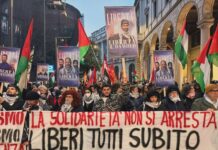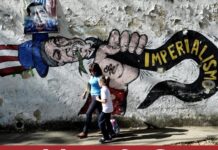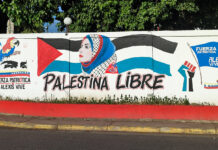
On 24 July, Palestinian prisoners Jafar Ezzedine and Ahmad Zahran suspended their hunger strikes after receiving a commitment from the Israeli occupation forces to end their administrative detention, imprisonment without charge or trial. Ezzedine had gone without food for 39 days and Zahran for 32 days. Both have spent years in Israeli prison in the past. Hassan al-Zaghari also suspended his hunger strike on 26 July after an agreement to end his administration and not renew his detention again, securing his release in six months. Samidoun Palestinian Prisoner Solidarity Network salutes Jafar Ezzedine, Ahmad Zahran and Hassan al-Zaghari on their victories over injustice and arbitrary imprisonment and looks forward to their liberation.
One day later, reports noted that four more Palestinian prisoners had joined the five remaining striking prisoners; there are currently 8 Palestinians on hunger strike against imprisonment without charge or trial. Israeli administrative detention orders are issued for one to six months at a time on the basis of so-called “secret evidence” and are indefinitely renewable; Palestinians have spent years jailed with no charge and no trial under repeatedly renewed detention orders.
Huzaifa Halabiya, Mohammed Abu Aker and Mustafa Hassanat have all been on hunger strike for 26 days and have been taken to the Ramle prison clinic after suffering a serious deterioration in their health. On 22 July, Abu Aker and Hassanat received a legal visit from lawyers at Addameer – a visit that had earlier been denied due to a sudden move to solitary confinement in retaliation for their strikes.
Abu Aker reported that he was transferred in the middle of the night while suffering from severe headaches and body pain as a result of his strike. He has lost at least 16 kilograms (33 pounds) since the beginning of his hunger strike and reports various types of retaliation: he was barred from recreation and even buying cigarettes for seven days, jailers have placed food in his room in repeated attempts to tempt him to eat (even telling him “today the food is tasty” and was denied underwear, toothbrush and toothpaste. Hassanat also reported losing 17 kilograms (35 pounds) since starting his strike and noted that the guards put meals at his door in order to pressure him to break the strike.
Abu Aker and Hassanat were reportedly taken on 25 July to the Ramle clinic along with Halabiya, whose health condition was already precarious. A leukemia survivor, he also suffered burns as a child over 90 percent of his body. His daughter, Majdal, is now six months old but has not met her father; she was born while he has been jailed without charge or trial under administrative detention.
Meanwhile, Sultan Khallouf of Burqin has been on hunger strike for nine days in Megiddo detention center. He immediately launched an open-ended hunger strike after his administrative detention order on 18 July to reject his imprisonment with no charge or trial on the basis of so-called “secret evidence.” He was arrested by occupation forces on 8 July and is a former prisoner who spent four years in Israeli prisons. He is married.

Ahmad Ghannam, 42, from Dura near al-Khalil, also joined the hunger strike against his ongoing imprisonment without charge or trial, as did Ismail Ali, 30, of Abu Dis, Jerusalem (also the hometown of Huzaifa Halabiya.) Munir al-Abed, 22, and Hamza Awad, 23, both from the village of Kobar near Ramallah, have been jailed without charge or trial since February 2019. They launched their hunger strikes on 21 July to demand their liberation from administrative detention.
Samidoun Palestinian Prisoner Solidarity Network salutes the victories of Jafar Ezzedine, Ahmad Zahran and Hassan al-Zaghari. We know more such victories are possible for all Palestinian prisoners and against the system of Israeli colonial administrative detention. We urge all to stand with these courageous prisoners who have put their lives on the line to seek freedom and an end to the unjust system of administrative detention. International solidarity can help them win their struggles, so all of our participation, protests and petitions can play a role in helping them to seize victory for justice and freedom.
Discover more from Samidoun: Palestinian Prisoner Solidarity Network
Subscribe to get the latest posts sent to your email.




